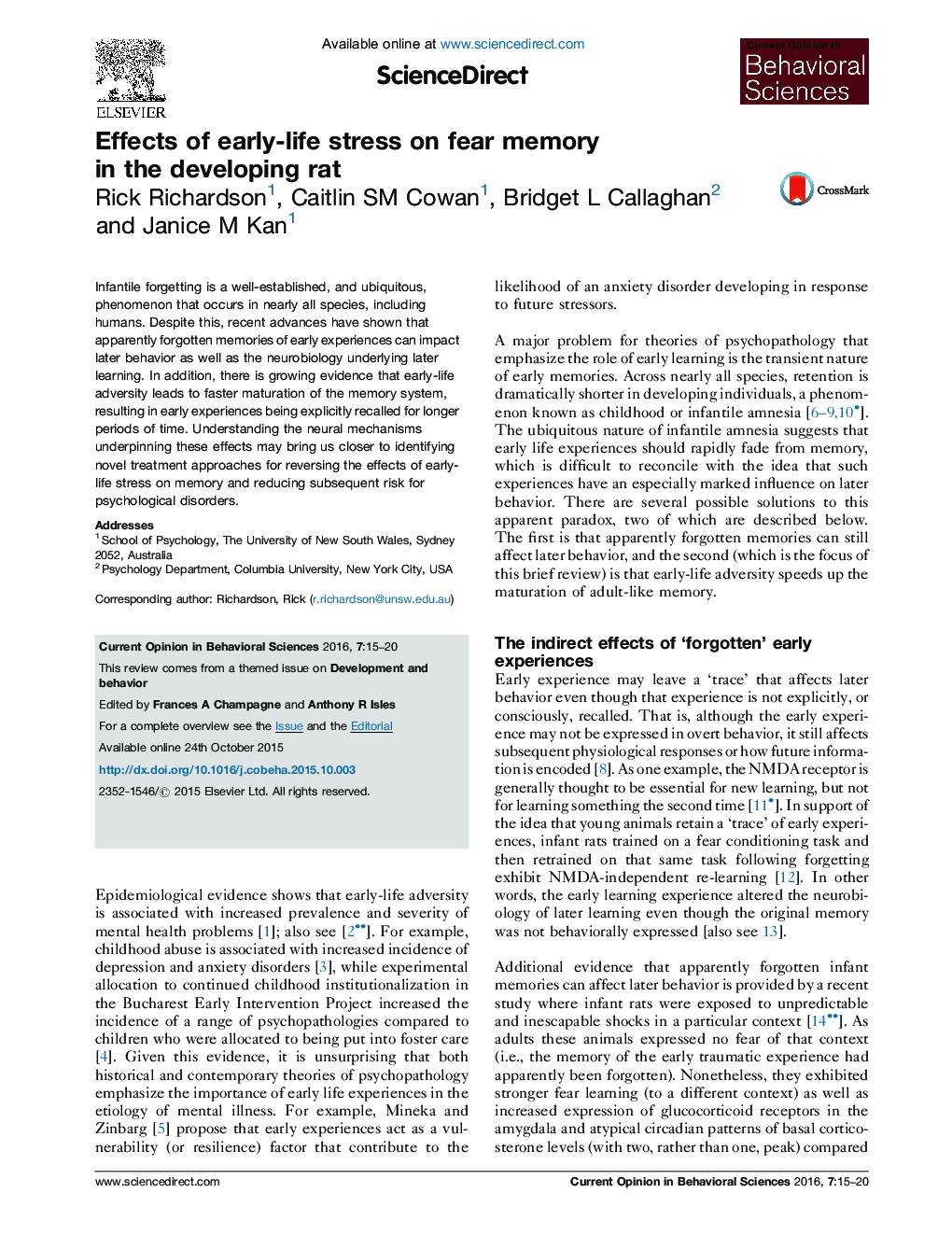| Article ID | Journal | Published Year | Pages | File Type |
|---|---|---|---|---|
| 6260639 | Current Opinion in Behavioral Sciences | 2016 | 6 Pages |
â¢Apparently forgotten early experiences affect later behavior.â¢Early-life stress leads to a faster transition to adult-like memory.â¢Critical period plasticity signals could be involved in this faster transition.â¢This faster transition could increase vulnerability to anxiety disorders.â¢Restoring gut-brain axis function may reverse stress-induced changes in memory.
Infantile forgetting is a well-established, and ubiquitous, phenomenon that occurs in nearly all species, including humans. Despite this, recent advances have shown that apparently forgotten memories of early experiences can impact later behavior as well as the neurobiology underlying later learning. In addition, there is growing evidence that early-life adversity leads to faster maturation of the memory system, resulting in early experiences being explicitly recalled for longer periods of time. Understanding the neural mechanisms underpinning these effects may bring us closer to identifying novel treatment approaches for reversing the effects of early-life stress on memory and reducing subsequent risk for psychological disorders.
